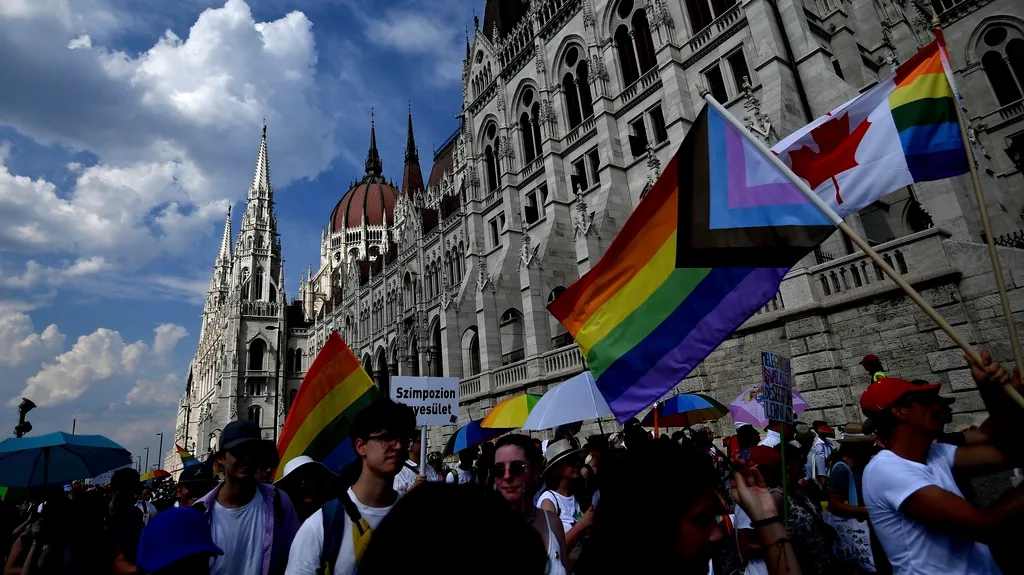January 27, 2016
Evangelicals at Odds with Business Over Indianapolis Convention Losses Stemming from Anti-Gay Law
Brian Slodysko READ TIME: 3 MIN.
Business leaders pointed to a report showing a possible loss of more than $60 million in Indianapolis convention revenues as a sign that a national uproar over a religious objections law hurt the state's economy, while an evangelical group said the impact was minimal for the multibillion-dollar tourism industry.
That split between social conservatives and the business wing of the Republican Party over the law that critics said sanctioned discrimination against gay people will likely be on full display Wednesday, when a GOP-controlled state Senate committee takes up two bills that would establish statewide LGBT protections.
"This really comes down to a battle of big business and big money against small businesses and religious liberty," said Indiana Pastor Kevin Baird, who advocates for religious conservative causes.
After the original law spurred a backlash last spring and the NCAA, the gamer convention GenCon and others talked of moving their events, lawmakers hastily made changes. Critics said the law still doesn't go far enough to protect lesbian, gay, bisexual and transgender people from discrimination.
Passage of the new measures is far from certain and Republican Gov. Mike Pence, who supported the religious objections law, has said he will prioritize religious freedom over LGBT rights.
The results of the survey by Visit Indy, obtained by The Associated Press on Monday ahead of its Thursday release, found that 12 out-of-state groups all cited the uproar over the law as one reason they chose different locations for their conventions.
Visit Indy, which has backed LGBT protections, put the impact of those conventions at $60 million, including hotel room rentals, meal purchases, entertainment expenditures and shopping figures, as well as state and local taxes. That's against $4.4 billion a year in economic impact such gatherings have yielded in recent years.
To business leaders, the findings confirm Indiana's economy was harmed by the law, which drew swift and largely negative attention. Companies and groups such as the NCAA, Cummins Inc. and Eli Lilly and Co. say it underscores the need for protections for anyone fired from a job, denied service or evicted because of their sexual orientation or gender identity.
"We've been saying all along that the impact to our state is very real," said Jon Mills, a spokesman for the Columbus-based diesel equipment manufacturer Cummins. "We need to create an environment that is welcoming and inclusive if we want other people to come here, whether that's top talent we want to recruit and retain, or conventions."
Democratic gubernatorial candidate John Gregg said the report illustrates a "failure" by Pence and is proof that his policies hurt Indiana's economy. Pence's office said Monday that Indiana was a "welcoming" state and many organizations have expanded their role or recommitted to hosting events in the state.
Evangelical groups questioned whether the impact was even significant amid signs of an improving economy and low statewide unemployment. They also accuse Indiana's business establishment of using the issue to coerce lawmakers into adopting laws that could compel Christian business owners to provide services to LGBT people against their religious beliefs
Micah Clark of the American Family Association of Indiana doubts all the conventions would have indeed chosen Indianapolis. "It's speculative," he said. "That's like me saying I'm boycotting Ferraris. Well, I was never going to buy a Ferrari anyway."
Visit Indy said all 12 groups surveyed said without being prompted that the law played a role in their decision to hold their events elsewhere.
The AP independently confirmed that one organization, the International Association of Fairs and Expositions, bypassed Indianapolis due in part to the law. Indianapolis was a finalist after the group decided to no longer hold its four-day event in Las Vegas, said Marla Calico, the association's president and CEO.
"There were some of our members who were aware that the city was under consideration, and a few were very vocal that they didn't think it would be appropriate," Calico said.
She said the reaction to the new law was "a piece of the equation" when her group decided not to choose Indianapolis, which she said was otherwise appealing because of its amenities and central location.





